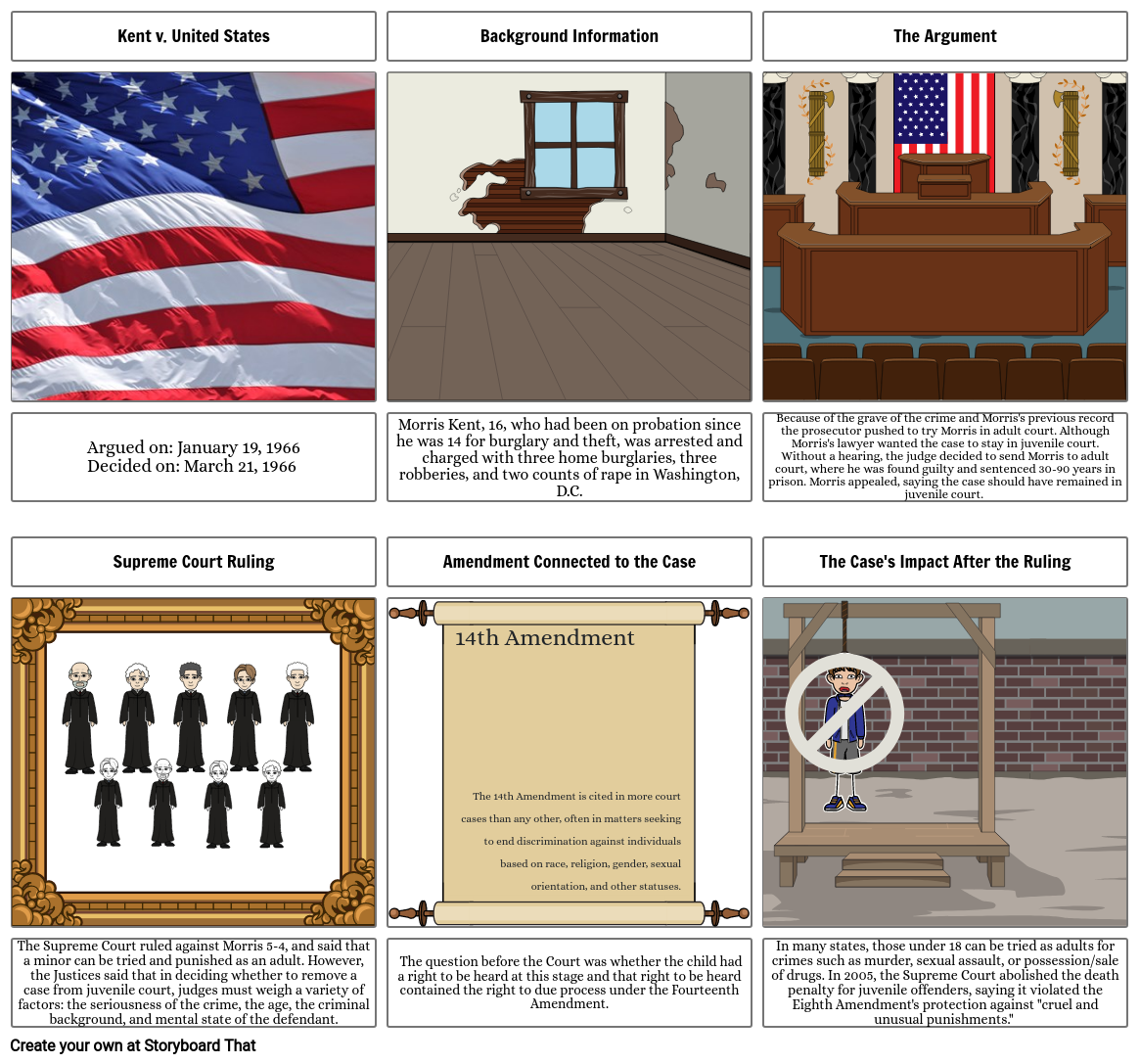Supreme Court Case - Kent v. United States

Storyboard Text
- Kent v. United States
- Background Information
- The Argument
- Argued on: January 19, 1966Decided on: March 21, 1966
- Supreme Court Ruling
- Morris Kent, 16, who had been on probation since he was 14 for burglary and theft, was arrested and charged with three home burglaries, three robberies, and two counts of rape in Washington, D.C.
- Amendment Connected to the Case
- 14th AmendmentThe 14th Amendment is cited in more court cases than any other, often in matters seeking to end discrimination against individuals based on race, religion, gender, sexual orientation, and other statuses.
- Because of the grave of the crime and Morris's previous record the prosecutor pushed to try Morris in adult court. Although Morris's lawyer wanted the case to stay in juvenile court. Without a hearing, the judge decided to send Morris to adult court, where he was found guilty and sentenced 30-90 years in prison. Morris appealed, saying the case should have remained in juvenile court.
- The Case's Impact After the Ruling
- The Supreme Court ruled against Morris 5-4, and said that a minor can be tried and punished as an adult. However, the Justices said that in deciding whether to remove a case from juvenile court, judges must weigh a variety of factors: the seriousness of the crime, the age, the criminal background, and mental state of the defendant.
- The question before the Court was whether the child had a right to be heard at this stage and that right to be heard contained the right to due process under the Fourteenth Amendment.
- In many states, those under 18 can be tried as adults for crimes such as murder, sexual assault, or possession/sale of drugs. In 2005, the Supreme Court abolished the death penalty for juvenile offenders, saying it violated the Eighth Amendment's protection against "cruel and unusual punishments."
Over 30 Million Storyboards Created

